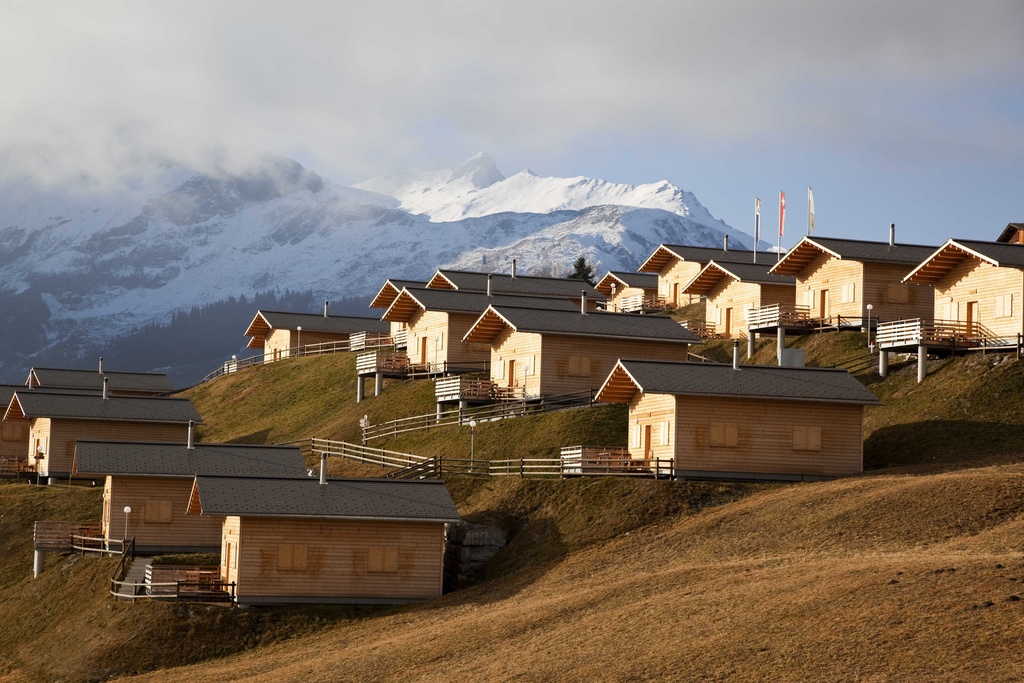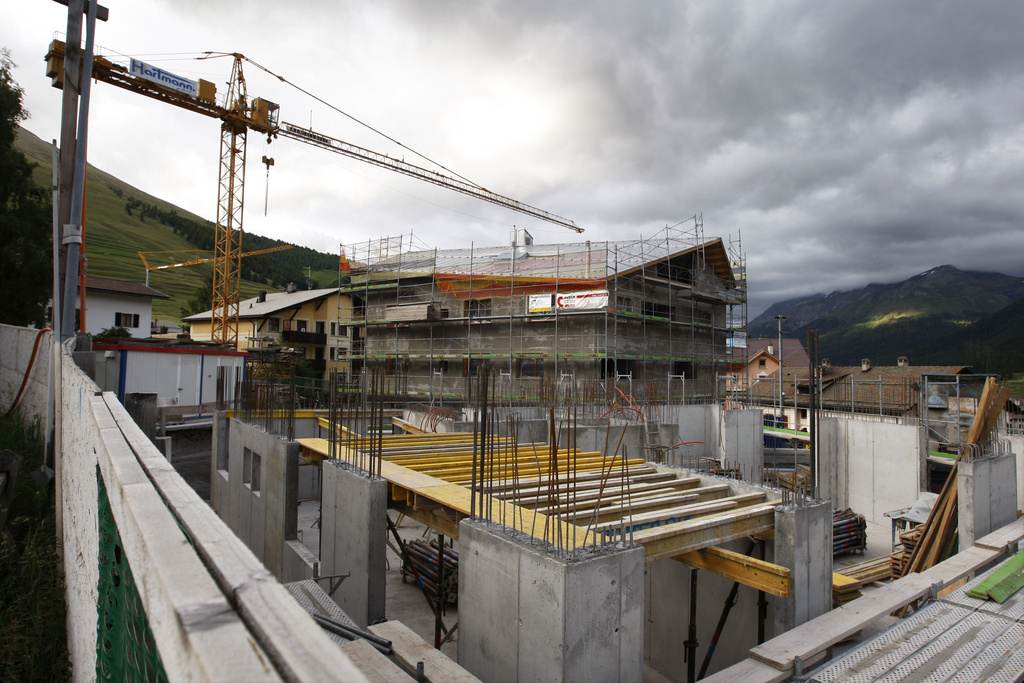Homes vote “reflects distrust of government”

The surprise acceptance of the initiative to restrict construction of second homes represents a vote of no confidence in the government, believes much of the Swiss press.
Several papers said that in supporting the initiative, which will see the construction of second homes restricted to no more than 20 per cent of each commune, the Swiss were expressing deep concern about the rate of urban development in recent years.
The editorial in the Neue Zürcher Zeitung (NZZ) described the second homes initiative, put forward by leading environmentist Franz Weber, as “pithy” and “half-baked”.
“The fact that it achieved agreement is an expression of popular discontent,” it wrote.
“[It] also has to do with the fact that many people are hostile to and sceptical about the accelerated construction activity in Switzerland. The success of the initiative reflects a distrust of the government.”
The paper added that the vote was an “expression of declining confidence” in the willingness of authorities to tackle certain interest groups in the name of the public good.
It was a sentiment echoed in Zurich daily the Tages-Anzeiger which said cantons and communes had effectively been handed “the bill for decades of negligent development planning” and voters had been unconvinced by protestations that they would address the issue.
Blame
The Tages-Anzeiger said that while there would be better solutions to the problem of over-development in the Alpine regions than the rigid 20 per cent rule, “parliament, cantons, municipalities and defeated associations only have themselves to blame”.
The paper described counterproposals put forward by parliament and business associations as “weak”.
The Südostschweiz said the vote represented a failure of politics. “They had it in their hands to work out a solution but the building and holiday region lobbies stopped it and thereby shot themselves in the foot,” the paper wrote.
“The villagers will have to pay for the reticent policy of others” for whom the vote will mean economic stagnation leading to eventual decline in local populations.
Over-development
Several papers noted that the vote reflected deep concern about the rate of development in recent years.
Le Temps in Geneva said the vote sent a strong signal for future debate about the development of rural areas. It said that in voting the way they had, the Swiss had expressed “deep reservations about federalism”.
“The Alpine regions have been judged not credible and irresponsible by the Swiss people,” the editorial began. “The trivialisation of the countryside and certain real estate developments seen as extravagant have strongly upset the population of a country which in recent years has experienced an accelerated urbanisation.”
For La Liberté in Fribourg, “the Swiss have demonstrated their attachment to the countryside but also their exasperation in the face of obvious abuse in certain Alpine stations where the view is disfigured by swarms of chalets built in a disorderly manner”.
Divorce
Other papers noted that the vote reflected a divide between attitudes in the city and country areas, which the Basler Zeitung described as a “divorce”.
In the Italian-speaking part of the country, the Corriere del Ticino criticised “the urban rich and the inhabitants of the lowlands” for whom “the Alps and the Southern Alps are primarily green lungs, a rustic and bucolic garden where the bells echo a past Switzerland pure and intact”.
The paper denounces those who voted in favour of the initiative as having little to do with the Alpine regions which depend on tourists for their livelihood.
“Many people wanted to send a warning without imagining for an instant that they would be punishing the mountain people,” wrote Le Temps.
The NZZ noted that several cantons had already taken steps to restrict the number of second homes and that different regional approaches allowed for an acceptable balance to be achieved.
Implementation
Describing the vote as radical and difficult to implement, the NZZ said the vote was an excessive and overly general answer to excesses of the past.
For the Tages-Anzeiger, authorities now have to face the “tricky task” of legislating to implement the will of the people. It added it was difficult to estimate the scale of the problems implementation would present.
However, Le Temps noted that the definition of a “secondary home” as given in the initiative text was broad enough to allow some leeway in interpretation as environmentalists and opponents of the initiative move towards implementing the vote.
And for La Liberté, the time has now come for dialogue, taking into account the concerns of all parties.
“Solutions will have to be found for all the apprentices, craftsmen and small business owners who risk losing their livelihood. From today, the lawyers of the environment ministry will have a Herculean task to define a law acceptable to everyone,” the paper noted.

In compliance with the JTI standards
More: SWI swissinfo.ch certified by the Journalism Trust Initiative














You can find an overview of ongoing debates with our journalists here . Please join us!
If you want to start a conversation about a topic raised in this article or want to report factual errors, email us at english@swissinfo.ch.